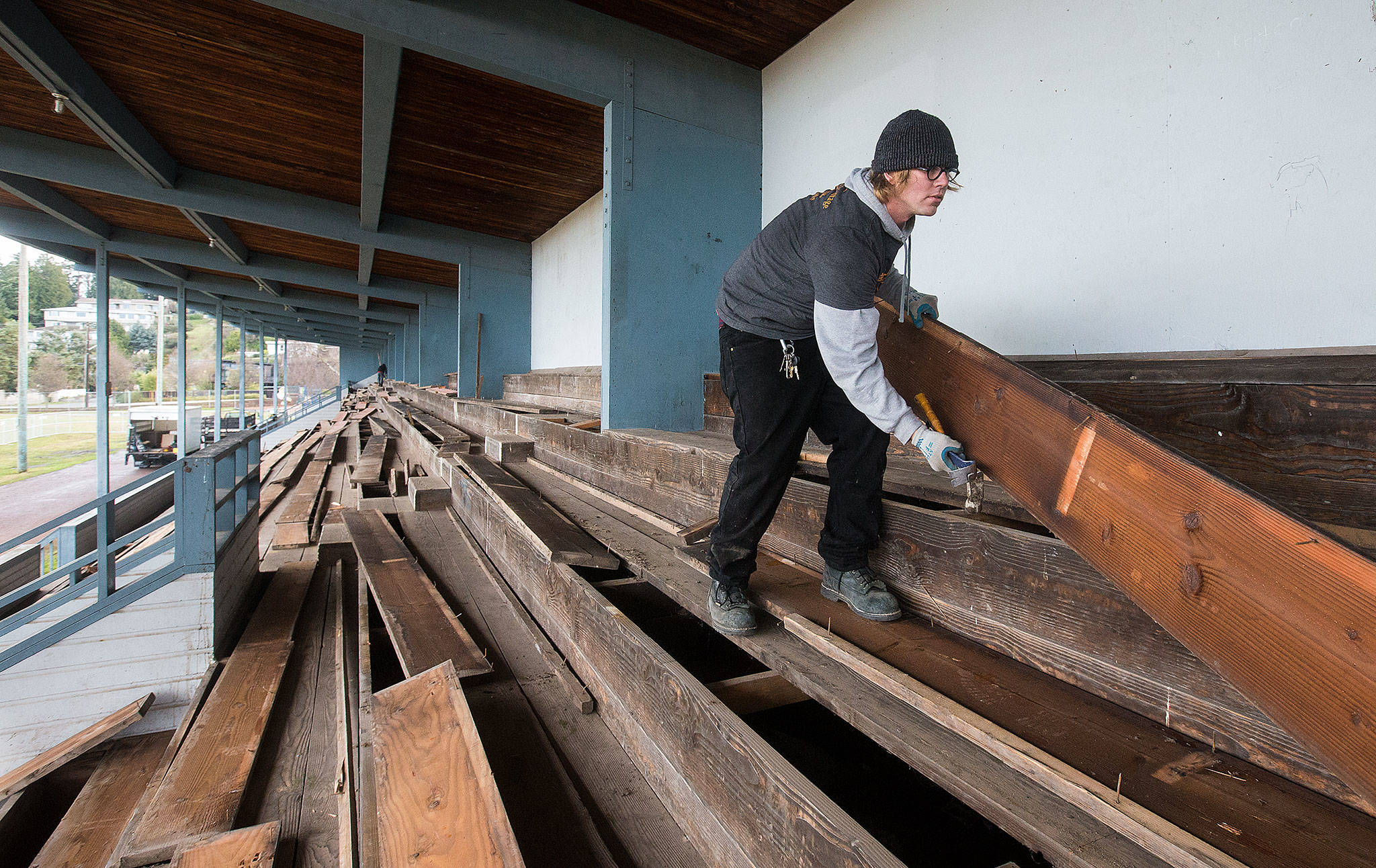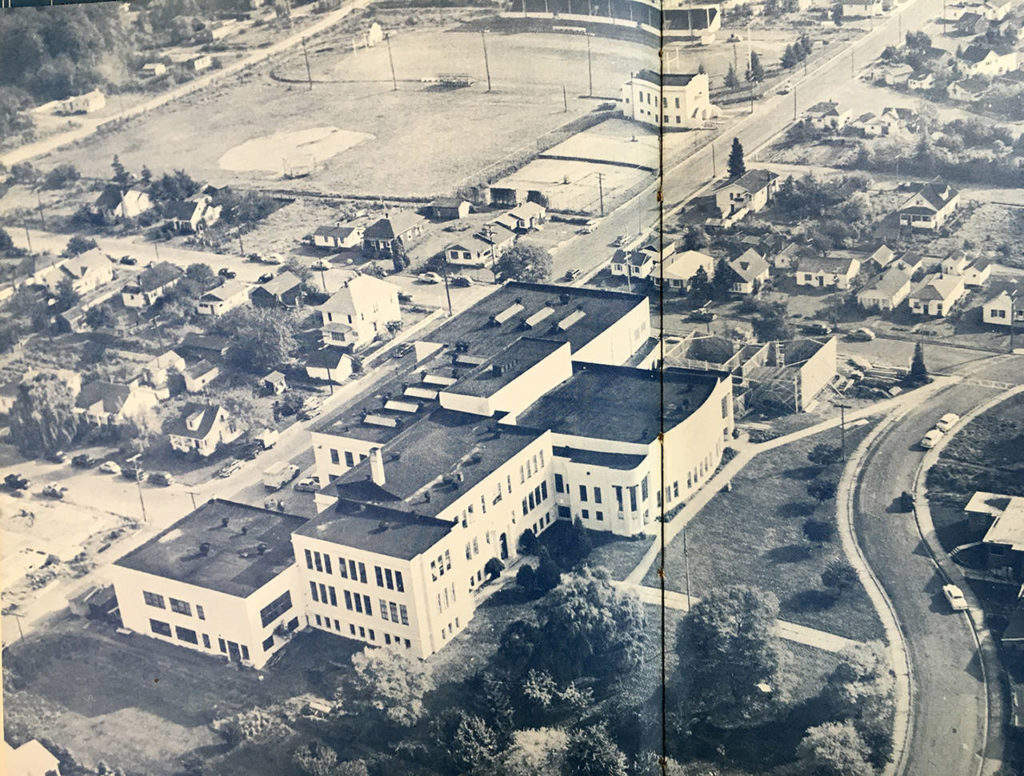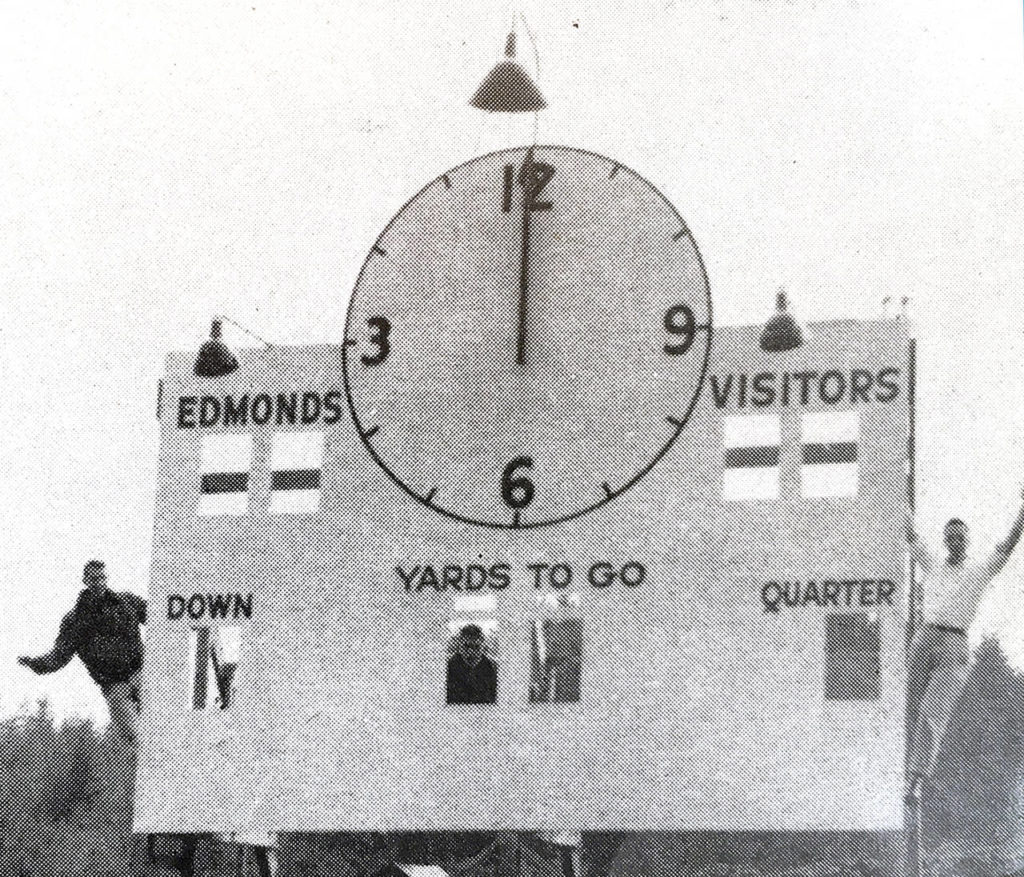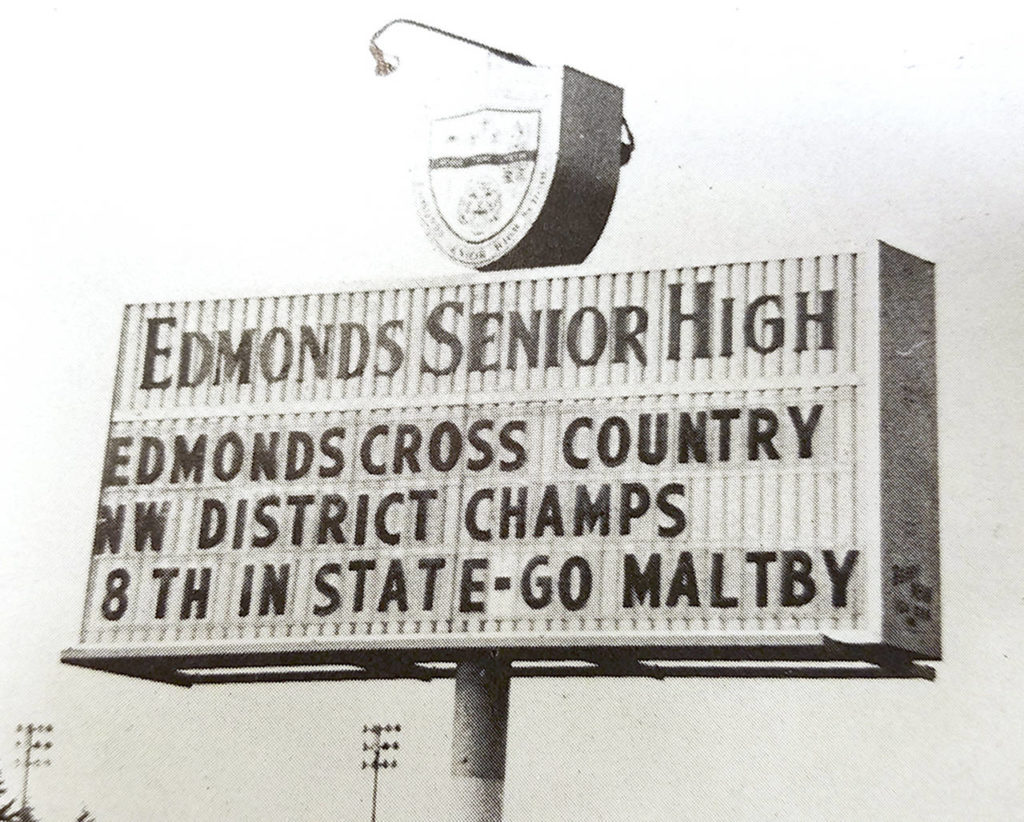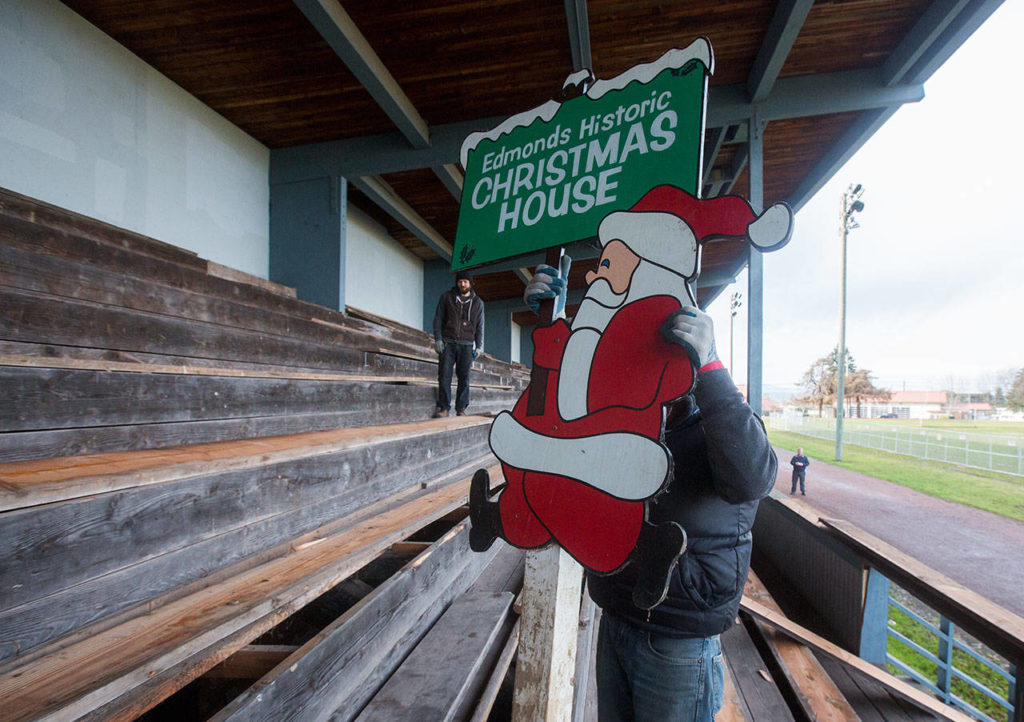EDMONDS — Greg Bergere, a 1958 graduate of Edmonds High School, was a member of the school’s track team competing in the 440-yard dash and the javelin throw.
His years were split between the “old” Edmonds High School, now the Edmonds Center for the Arts, and its replacement on 212th Street SW.
He has vivid memories of the old high school’s stadium. “We played football and track on that field,” he said.
The old stadium, most recently used as a viewpoint for watching the city’s Fourth of July fireworks and a place to jog and walk its track, opened in October 1937.
Bergere, 77, said that as a child he played flag football some evenings on the stadium’s field. He also watched his cousin, a member of a semi-pro football team, the Seattle Ramblers, play some of their games there in the early 1960s.
But its standing as a historical landmark will soon end. The stadium is being demolished to make way for the city’s new 8-acre Civic Park.
The city had hoped to salvage and recycle the wood from the stadium’s bleachers and use a portion of it in the new park.
But when the recycling company, Ballard Reuse, began examining the wood in the bleachers earlier this week, “most of the boards they popped were bug damaged,” said Carrie Hite, the city’s parks, recreation and cultural services director.
The company told the city: “We don’t think it’s reusable.”
The city is checking to see if the damaged wood can be chipped up rather than taken to a landfill.
Stadium demolition, by Construction Group International, is scheduled to begin Monday. The contract is for $63,442.
Once the stadium comes down, a permanent fence will be built along a nearby alley and the construction fencing will be removed.
Park development probably won’t begin until 2019 or 2020 with projected costs of up to $12 million.
The city leased the nearly 8-acre site surrounding the stadium from the Edmonds School District for nearly 40 years. The property has been used as a park since 1975.
In 2015, the city reached an agreement with the school district to purchase the land near the Boys & Girls Club at 310 Sixth Ave N for $1.9 million.
The Hazel Miller Foundation recently pledged a total of $1.5 million for the project.
And $2 million has been set aside in the city’s 2018 budget.
Development plans call for space for small-to medium-size events and performance, plaza and promenade areas, petanque courts, a picnic area, lawn terraces and a play field.
Even though the land that has been occupied by the stadium will be converted into one of the city’s largest parks, Hite acknowledged that some long-time Edmonds residents probably will be sad to see it go.
Chris Wolfe, 71, accounting manager at the Edmonds Senior Center, remembers going to the stadium with his dad to see Edmonds High School football games in the 1950s when he was in grade school.
The team played in the Northwest League with schools that included Mount Vernon and Anacortes, he said.
He remembers watching Fourth of July fireworks at the stadium. Later, as a middle school student, he and other members of the track team would “sit up in the stands to get out of the rain.”
Every spring it was the same issue at the track. “I can remember the east end of the thing was always mud and it was regularly flooded,” he said.
The stadium is long past its useful life, Wolfe said. “I have no attachment to the stadium. It’s the fact that they will maintain that as a public space that’s really important. It will be great for the public.”
For some, the demolition of the stadium brings back memories of an Edmonds few can now remember.
For Wolfe, it’s the annual trip made by the Seattle Symphony to perform at the old Edmonds High School.
Bergere’s family moved to Edmonds in 1947, when the city had only one traffic signal, a blinking red light.
“There were dirt roads out there,” he said. “My dad cut Walnut Street from Fifth to Third Avenue to build a house on.”
His second-grade class met in the basement of the stadium’s field house, now the Edmonds Boys & Girls Club, while an addition was built to the Frances Anderson grade school.
Bergere, a long-time docent at the Edmonds Historical Museum, said word soon spread there about plans to demolish the stadium. But he wonders if its destruction may be news to others.
“It’s a sad deal,” he said of the stadium demolition. “I know maybe it’s an eyesore. But if you’re historical-minded, it’s an institution.”
Sharon Salyer: 425-339-3486 or salyer@heraldnet.com.
Talk to us
> Give us your news tips.
> Send us a letter to the editor.
> More Herald contact information.
